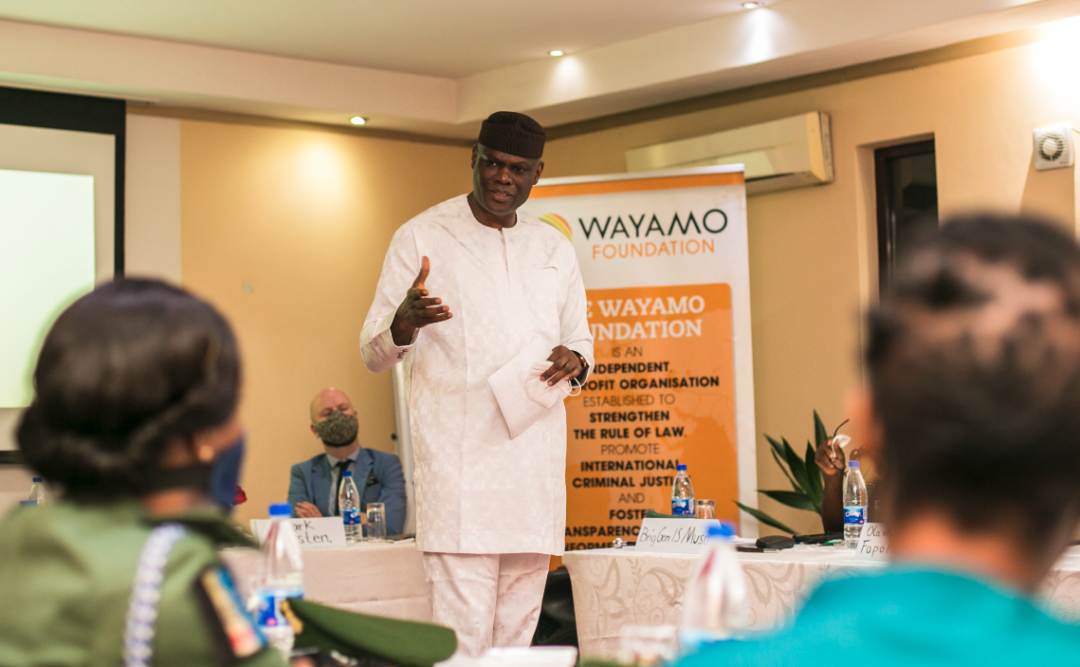Click here for all the event pictures.
At previous Wayamo workshops, representatives of the Nigerian Navy, Army and Air Force discussed the possibility of setting up a highly specialised unit of military investigators and prosecutors, who would be specifically trained to investigate and prosecute alleged war crimes and crimes against humanity, both of which potentially fall under the jurisdiction of the International Criminal Court (ICC).
As a result of these discussions, Wayamo hosted its first capacity-building programme for members of the proposed Serious Crimes Response Team (SCRT) on 25 May 2021. The second SCRT training session took place over the span of three days: from 11 to 13 August 2021, participants and local experts gathered at Epe Resort in Lagos, with some international experts joining via Zoom. The goal was two-fold: on the one hand, to further enhance team members’ knowledge of and expertise in relevant topics relating to international criminal law and international humanitarian law; and on the other, to explore the next practical steps to be taken towards ensuring that the SCRT takes shape as projected and eventually becomes fully functional and operational.
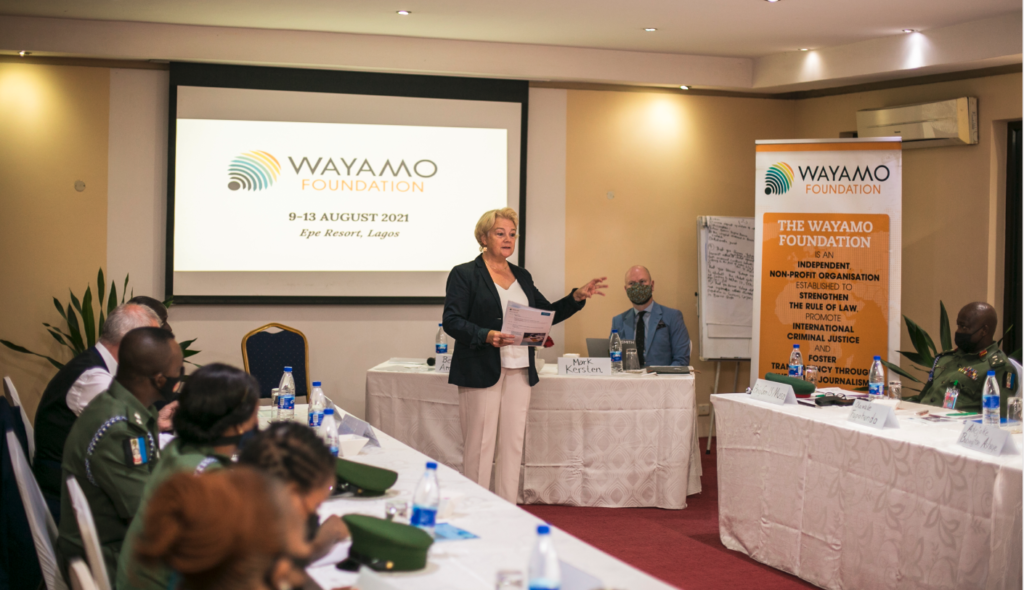
Opening remarks by Bettina Ambach, Wayamo Director
On the first day, two institutions were present, namely, the Nigerian Federal Ministry of Justice and the Nigerian Armed Forces. The event was officially opened by Bettina Ambach, Wayamo Director, Brig. Gen. SI Musa, Director of Legal Services, Defence Headquarters, Olawale Fapohunda, Ekiti State Attorney-General and Commissioner for Justice, and Ahmadu S Mainasara, Assistant Director of Prosecutions. A brief introductory session and discussion amongst the participants was followed by an in-person lecture by International Law Specialist and former ICC investigator, Adejoké Babington-Ashaye, on international criminal investigations.
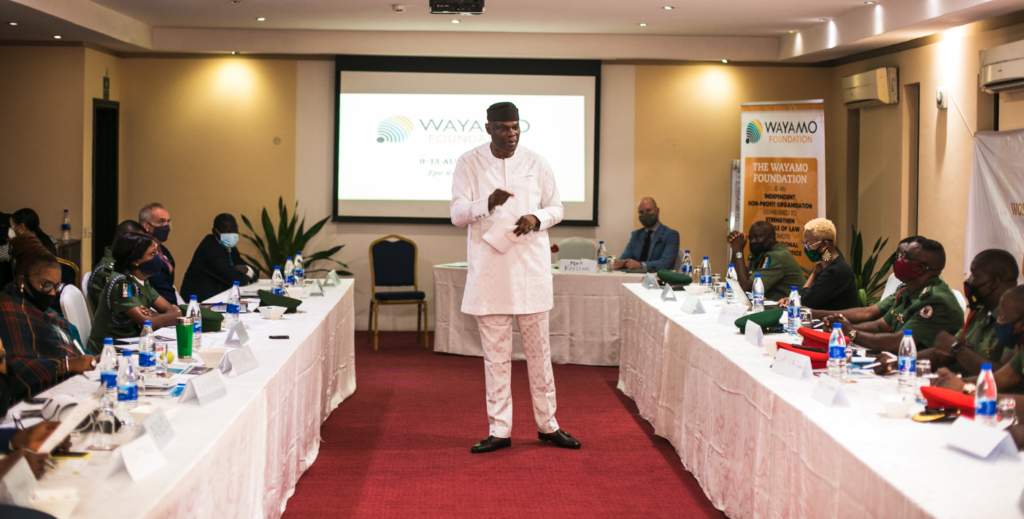
Olawale Fapohunda, Ekiti State Attorney-General and Commissioner for Justice, spoke on the importance of military compliance with human rights
The afternoon kicked off with Olawale Fapohunda talking to participants about the importance of military compliance with human rights. After a short tea break, he was followed by Mark Kersten, Senior Consultant at the Wayamo Foundation, who spoke on the principle of complementarity and its relevance in Nigeria. The day was brought to a close with a brief presentation by Matthew Odu Una, Prosecutor, Complex Casework Group (CCG), Federal Ministry of Justice, who confirmed that the CCG was ready to proceed with the next batch of trials of suspected Boko Haram members. In a spirit of collaboration, he asked the military to help ensure that all the necessary preparations were made for these trials to be held as soon as possible.
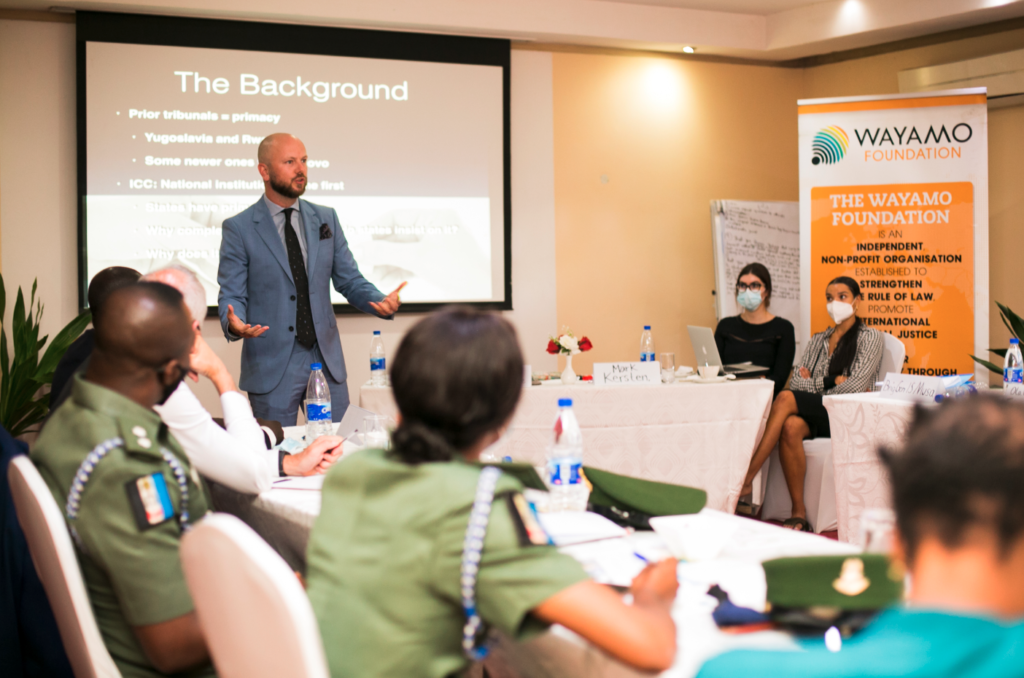
Mark Kersten, Senior Consultant at the Wayamo Foundation, spoke on the principle of complementarity and its relevance in Nigeria
Day 2 commenced with a practical three-hour session on battlefield evidence, given by Alan Edwards, UK Expert on Serious and Organised Crime Investigations. After lunch, Lt. Col. RJ Bakare, Nigerian Army School of Legal Services, Zaria, and Commander HB Yusuf, Special Investigation Bureau Naval Headquarters, delivered presentations on military investigations. The day was brought to a close by Sofia Candeias, UN Team of Experts on the Rule of Law and Sexual Violence in Conflict, Office of the Special Representative of the Secretary-General on Sexual Violence in Conflict, who joined participants via Zoom to discuss the investigation and prosecution of conflict-related sexual violence crimes.
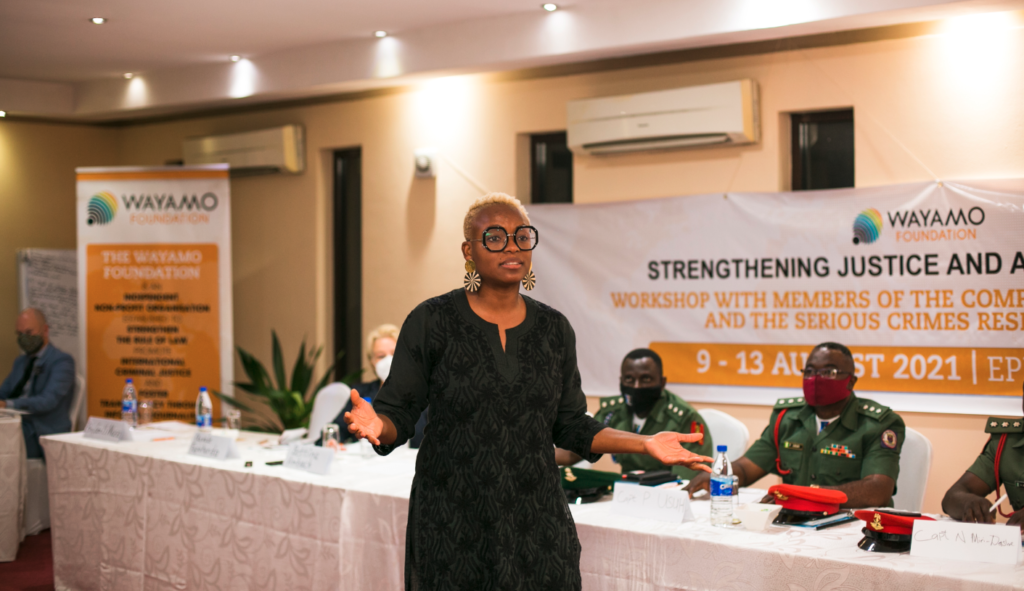
Adejoké Babington-Ashaye, International Law Specialist and former ICC investigator, spoke on international criminal investigations
On the final day, Captain Ian Park, Royal Navy, United Kingdom, joined participants via Zoom to deliver a short presentation and field questions on command responsibility and the distinction between international and non-international armed conflict. Lastly, Akingbolahan Adeniran, Attorney-General and Commissioner for Justice of Ogun State, Nigeria, and Charles Adeogun-Phillips, Partner, Charles Anthony LLP and former Lead International Prosecutor, joined the group to discuss the proposed role of the SCRT. Working together with the participants, they came up with a set of short- and long-term measures to ensure that the unit becomes fully operational.
The comments in the evaluations provided valuable insight. The workshop was received very positively, being alternately described as “very educative”, “inspiring”, “awakening”, “thought–provoking” and “brave in the content it tried to deliver”. One participant said that the training was “one of the best workshops I have ever attended. The resource persons brought their experiences to bear with practical illustrations and deep insights into the topics discussed”.
Above all, the second workshop seemed to clear up some misconceptions about what the SCRT should actually become and the exact role it should play. As one participant put it, “the workshop has unequivocally cleared my doubts on the role of the SCRT. The SCRT will, amongst other things, address the allegations of the ICC Office of the Prosecutor against the Nigerian Security Forces”. The workshop also reinforced the need, another participant wrote, “to be more transparent with what the military is doing to address allegations of human rights violations”.
In terms of topics to be added to the curriculum, participants hoped that future workshops would address: how a case moves through the procedural phases before the ICC; the application of international criminal law in the Nigerian legal framework; witness and suspect interview techniques, especially for international crimes; forensic investigations; victim and witness protection; international customary law; and a deeper exploration of command responsibility.
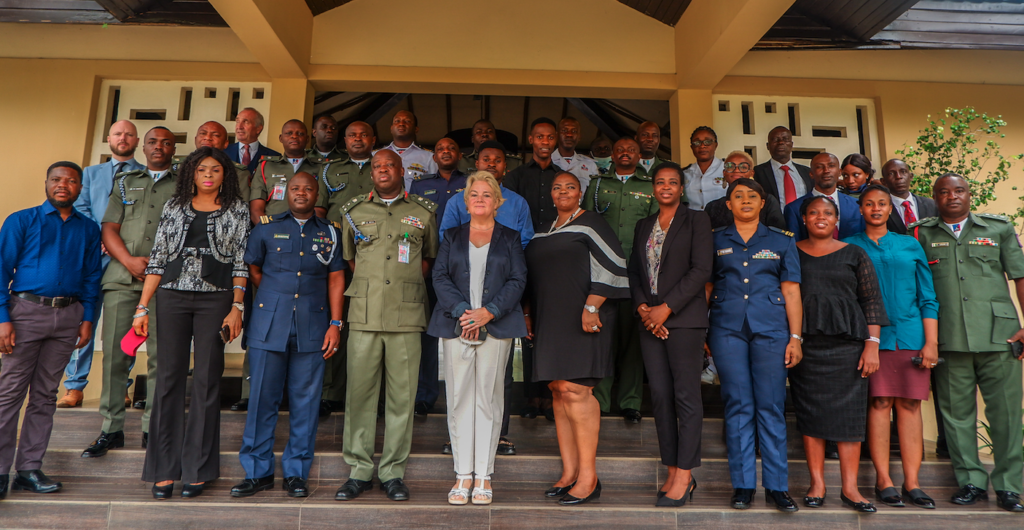
Group picture

